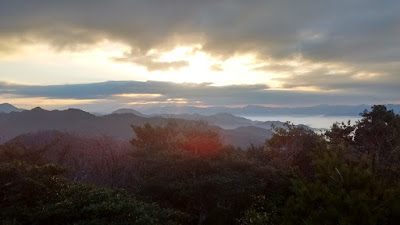Japan's essentials (are not a thing)
Some notes before I go to Awaji island.
Since at least Napoleon III in France and the Jesuit missions, Japan has attracted the westerners’ eyes. It is also a country that likes to be looked at. One rarely meets a German that always say « Now that is very German ! ». Meanwhile, there is always some Japanese person (or a « Japafan ») that keeps on saying stuffs like « That is very Japanese, this is the real/true Japan ! ». To all these adepts of the land of the rising sun, one should not only learn Japanese, but also learn Japan.
The myth of a knowledgable Japan
In What is called thinking ?, Martin Heidegger wrote :
« What does it mean to learn ? It means that what we are doing and not doing is the echo of the revelation each time of the essential. We learn thinking by noticing what needs to be kept in the thought. »
(fair warning : it’s my super rough translation form French here.)
Long story short : to learn, it is to preserve the essential and to eliminate the superfluous. Note here that it is a double action : the elimination can take much more time than the preservation. But what is the essential ? Some would say that it is a sum of objective knowledges. I think that it is rather what is essential to us.
Just as there is not a pre-set of thoughts to keep, there is no unique Japan that is objectively necessary to understand and to know about. The essential is not in the item observed but in the relationship we have with it ! (thanks to my buddy Hegel here)
 |
| Japan inspired the European Art Nouveau...which inspired Japanese Art Nouveau in return... |
Our interest in things
Heidegger goes on some few lines later and discuss the words « interest » and « interessing ».
« Inter-esse [according to its etymology] means : to be among things, to stand at the heart of a thing and to be by its side. » Meanwhile « the characteristic of what is ‘interesting’ is that it can become indifferent in an instant and be replaced by something else that concerns us as little as the previous thing. »
In my own reading of it : there is a consequential difference between what attracts the eye, the interesting, and what we feel interested in, concerned by.
The map and the land
Japan is no terra icognita, on the contrary, it is mottled with scattered pieces of informations that one could harvest and collect for a lifetime. The internet and libraries are swarming with traveler’s accounts, more or less scientific ‘practical’ guides, derisory or moved pictures and documentaries full of mystical or critical analysis. Long story short : Japan is shown as an interesting place and it works. Now, everybody wants to travel in search of this true Japan that everyone is talking about — Wether it’s the kitscho-pop Japan or the serious-to-death one.
But the gathering of such knowledges and experiences is somehow sterile. Just like the greatest videos of the internet, it leaves an aftertaste of insatisfaction. It all seems rather meaningless at some point.
 |
| Knowledge can be kept close like a moss or brightly shine and dissapear like the sun on a stone. |
Paths that come from nowhere
The more it goes, the more I think that, even if ‘Japan is not what it used to be’ (which is true, by definition). I don’t think that the world grew uglier. We just expect it to amaze us without acknowledging that amazement comes from us. Without our desire, our interest in things, our feeling of being concerned by them, the world is at most an entertaining place.
So, if you want to go to Japan, I hope you did not take too many readings with you. Because the most powerful amazement, the one that touches you straight in the core of the heart, no one can prepare you for it. True Japan is not amazing. But drinking tea on the first of January on a mountain sometimes is.
So, all in all, there is no preparation for travels and too many for the stories that follow them. In the nervous fog of informations and interesting stories, it is difficult to find one’s own path, own voice — and own silence.





Comments
Post a Comment